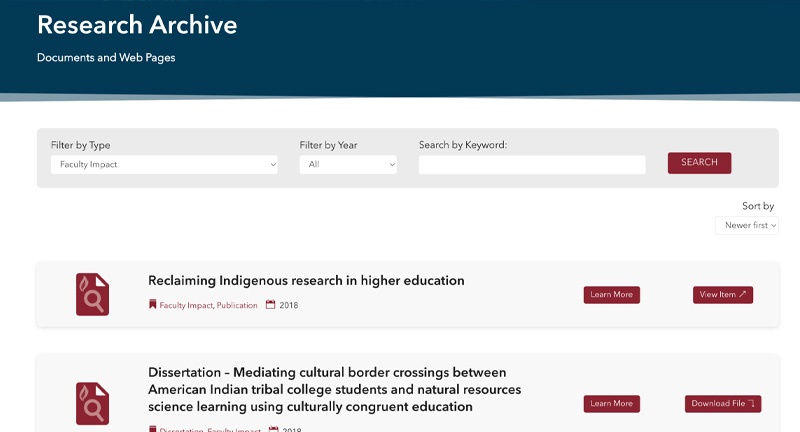American Indian College Fund President and CEO Cheryl Crazy Bull weighs in on how companies can make the workplace friendly to diverse employees.
Month: March 2017 Blogs
USA Today Diversity Campaign Features College Fund
The American Indian College Fund joined national industry leaders to educate and empower business leaders about expanding diversity in the workforce. Native American students have unique perspectives to offer employers and their voices and perspectives helps strengthen the quality of American commerce.
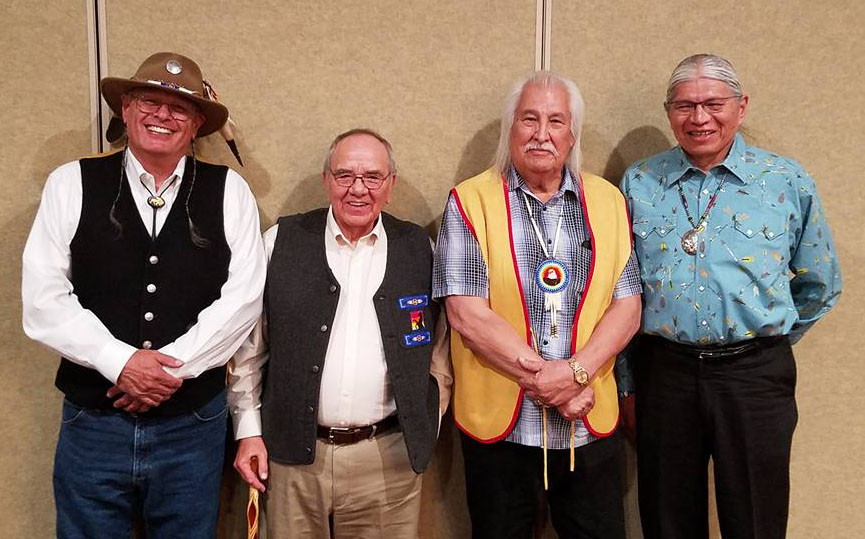
Native Higher Ed. Professionals and Students Earn Top Awards from the College Fund and Adolph Coors Foundation
The American Indian College Fund honored 34 American Indian tribal college students of the year, tribal college president Dr. Laurel Vermillion, and U.S. Department of Education employee John Gritts on March 19 at the 2017 Student of the Year and Coca Cola Award Banquet in Rapid City, South Dakota in conjunction with the American Indian Higher Education Consortium Spring Student Conference.
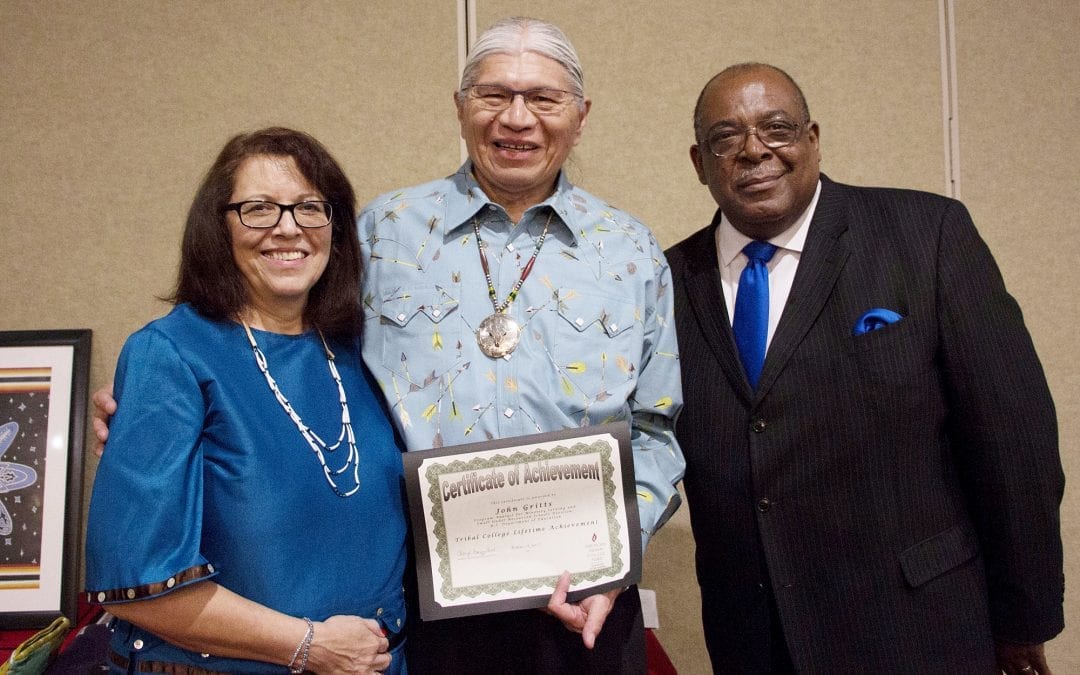
American Indian College Fund Honors Two Leaders in Native Higher Education
The College Fund named Dr. Laurel Vermillion, President of Sitting Bull College in Fort Yates, North Dakota and a member of the Standing Rock Sioux Nation, the 2017 American Indian College Fund TCU Honoree of the Year. This honor recognizes a distinguished individual who has made a positive and lasting impact on the tribal college movement.
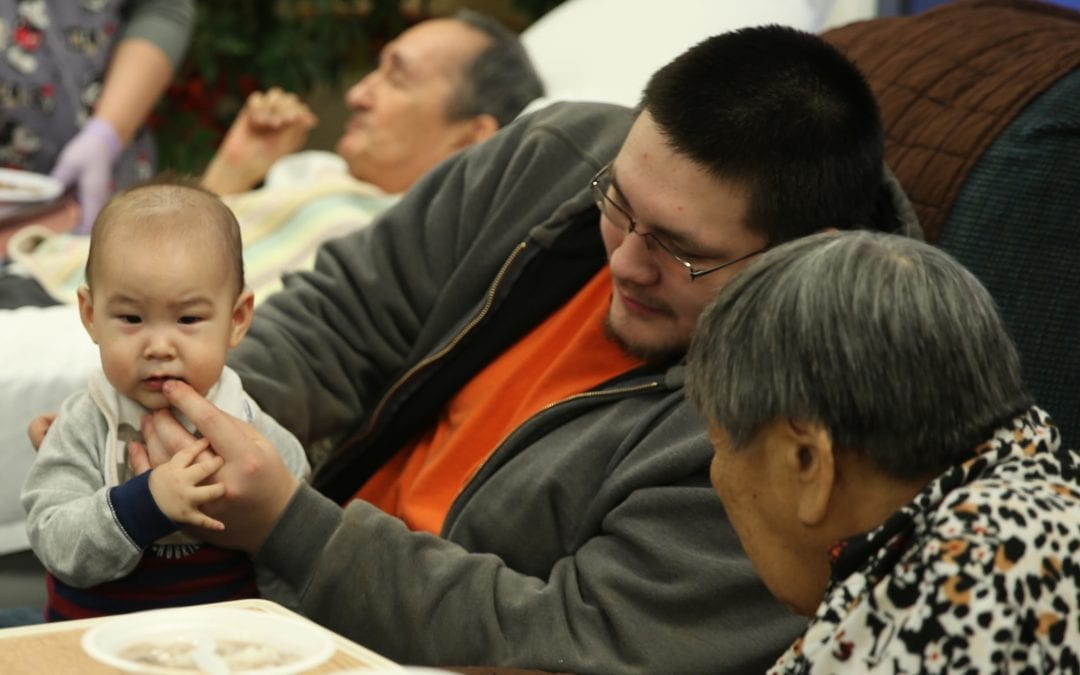
Connections That Create Health, Wellness and Security
At the heart of Iḷisaġvik College’s Restorative Teachings project is the desire to nurture and support meaningful connections between early childhood students, their families, and the community as a whole. It is through these connections that knowledge of language and culture, love, respect, and compassion are passed from one generation to the next.
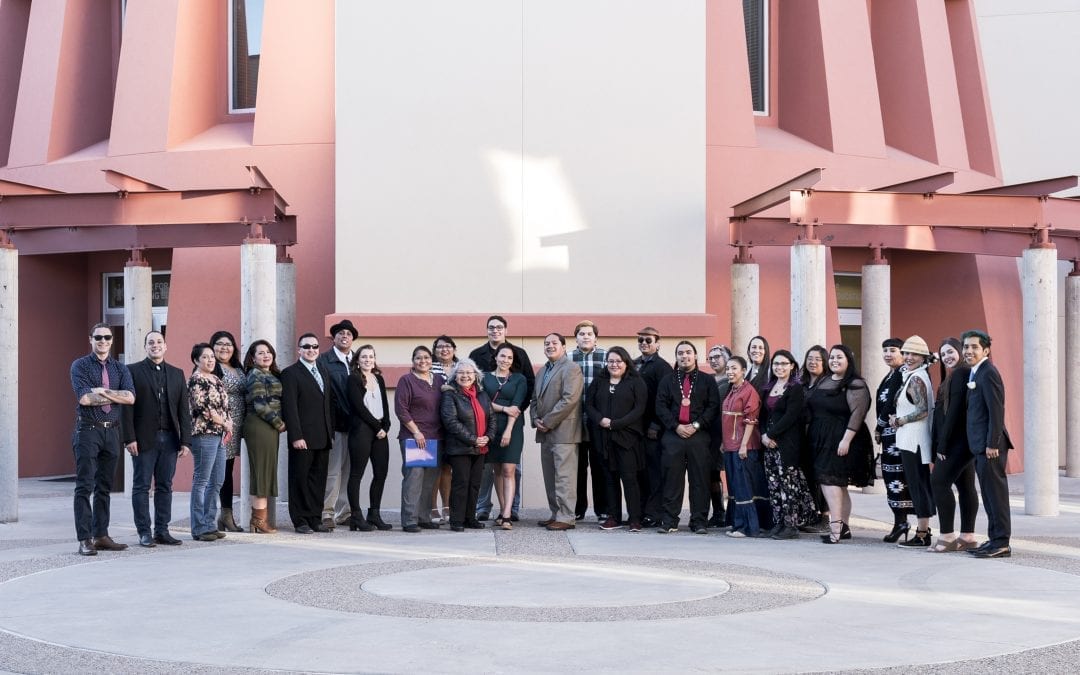
What a Treat to See Scholars Receive Awards
As a staff member with the College Fund, I had the honor to attend the spring Scholarship Awards Night at the Institute of American Indian Arts (IAIA) to witness 260 students moving one step closer towards their educational goals. The event awarded 534 College Fund scholarships to 260 students totaling $519,906.
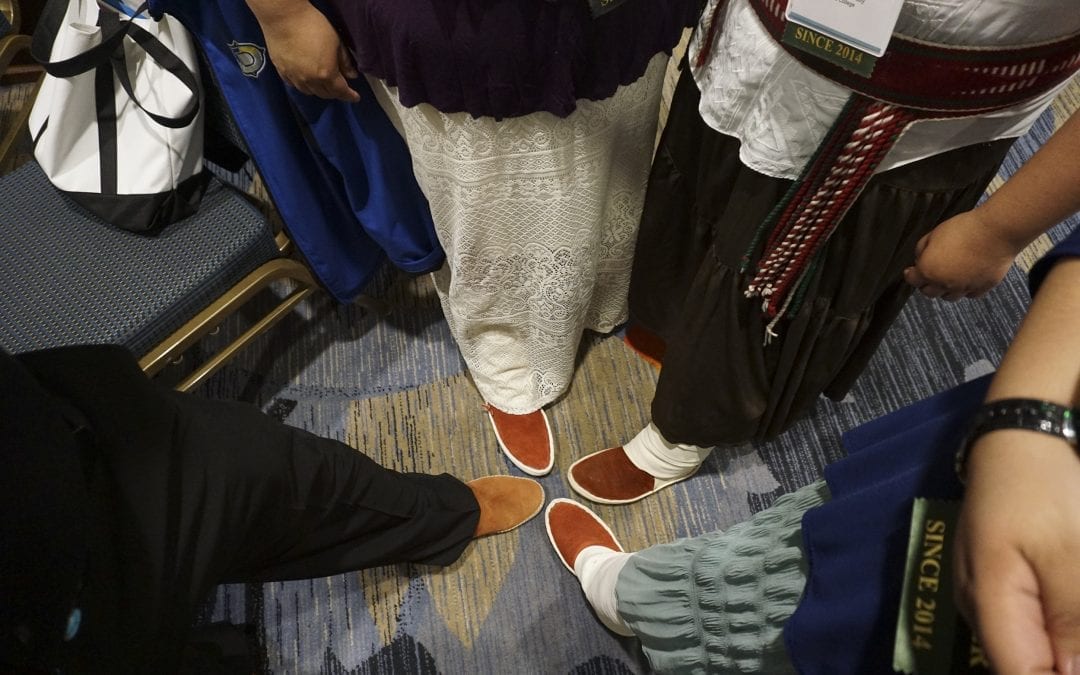
Achieving the Dream – Developing Data Capacity to Increase Success
The Achieving the Dream (ATD) program helps networking colleges to improve student success by providing a menu of services to its colleges, including technical assistance, leadership, data coaching, and more. In addition, ATD hosts an annual DREAM conference where more than 2,000 leaders from 200 community colleges across the country gather.
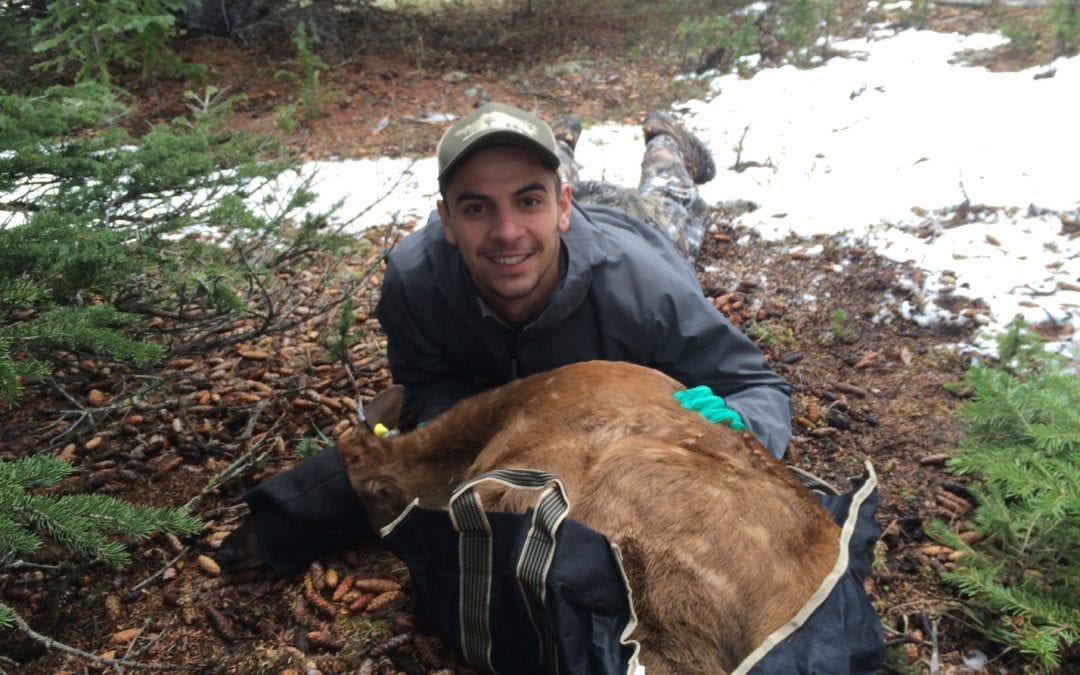
Fellows Contribute to Sustainable Environment and Contribute to Communities
The fellowship’s goal is to promote environmental sustainability in tribal communities that leads to systemic change. The research component of the fellowship is designed to create research projects that are meaningful and relevant to the students’ tribal communities by improving community environments and the health of tribal people. By educating tribal communities about environmental issues and working together as a community, tribal communities can build and utilize better land and resource management systems.
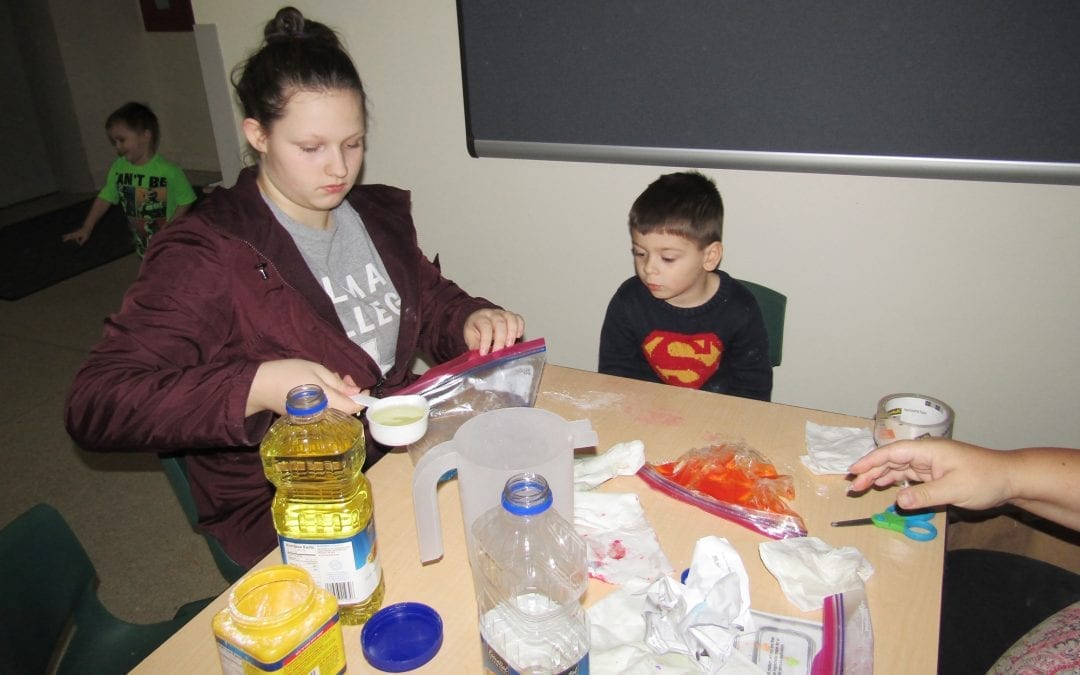
BIMAADIZIWIN: “A Healthy Way of Life” Through Family Fun Night
At Keweenaw Bay Ojibwa Community College (KBOCC) traditional Ojibwe teachings which portray the family as a part of the framework that honors the individual and the collective groups to which the individual belongs. Throughout the year, Migiziinsag (Little Eagles), an early childhood program for four-year-old children, engages by incorporating aspects of indigenous early learning, Anishinaabe language, cultural ceremonies, nutrition and physical activities. The “Family Fun Event Planning Framework” embraces four areas:
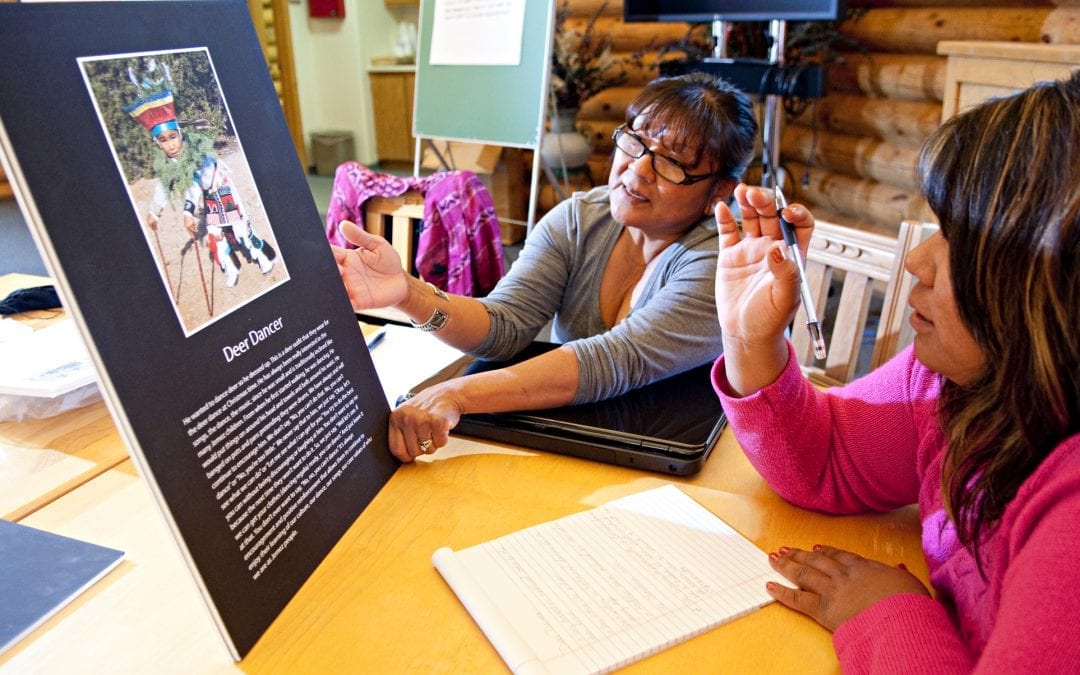
Guide for Educators First To Feature Tribal College Professionals’ Work
A new guide for educators titled Teacher Education Across Minority-Serving Institutions: Programs, Policies, and Social Justice, edited by Emery Petchauuer and Lynnette Mawhinney (Rutgers University Press, 2017) shares successful teaching practices and teacher education programs from minority-serving institutions (MSIs) across the country.




